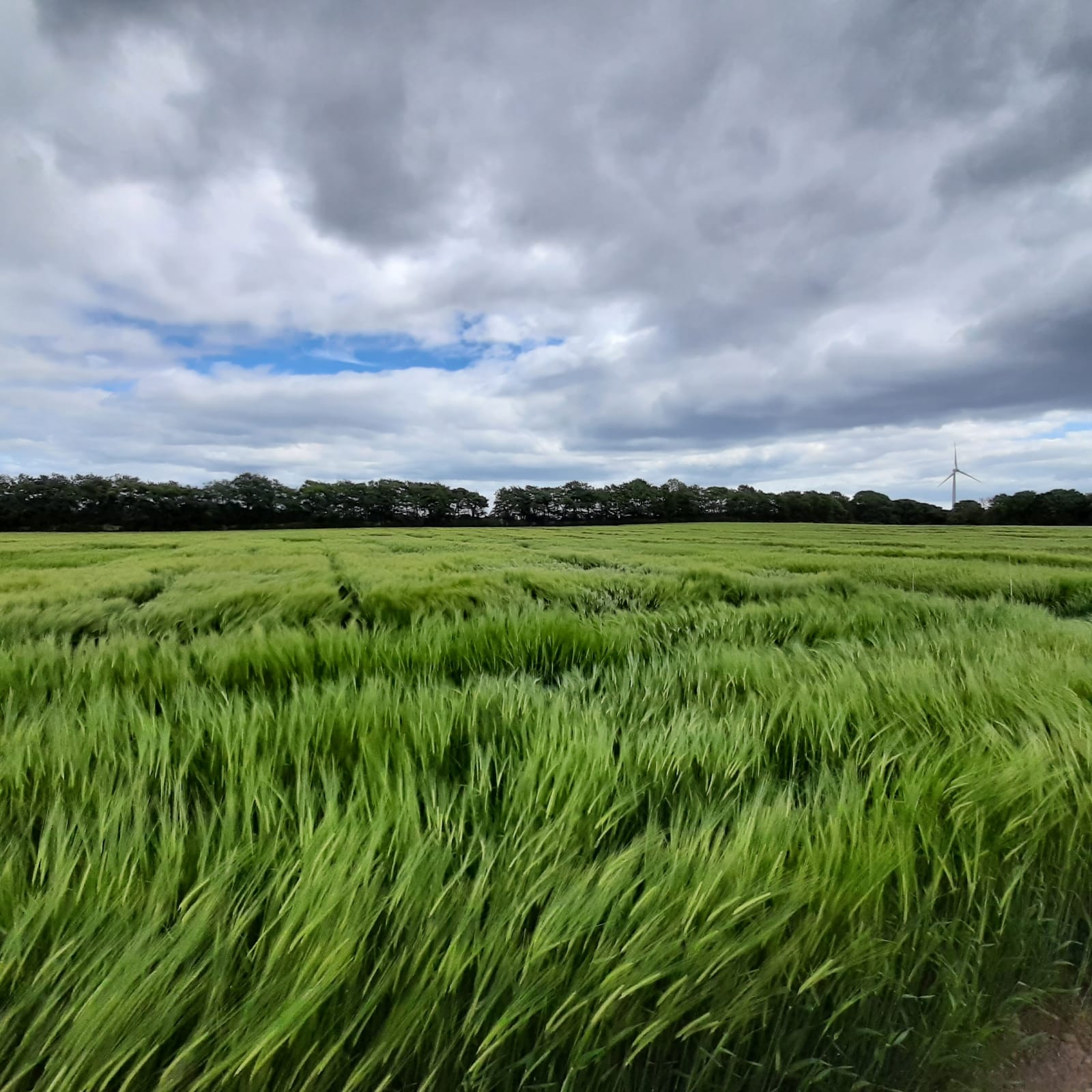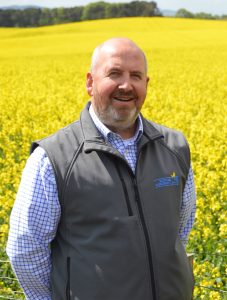
Adam Christie, Managing Director of Scottish Agronomy
I read recently that the word of the year for 2023 was “hallucinate”. While this is a case of new uses for an established word, at times this year it was entirely appropriate as I thought I glimpsed blue sky through the murk, only to realise that it was my imagination and that the challenging weather would continue.
What a change from 2022. From the almost perfect season, 2023 began with a series of in/out frosts through February and March seriously hurting any poorly established crops. This was not helped by the rain through March, meaning February’s drying was for naught and we ended up with one of the later springs in recent memory.
Summer then arrived in May and June and, while never as dry as the previous year, it still put crops under considerable stress. The harvest was characterised by changeable conditions. Not easy, but not impossible either.
Impossible would come later with late drilling and potato harvest faced with almost biblical levels of rainfall. Rain gauges in Angus and Aberdeenshire have recorded up to one third of average annual rainfall in one month. Key decisions of late wheat versus spring barley have in many cases been enforced by the weather, rather than the grower.
As bad as it may seem, estimates for Scotland are that up to 90% of the winter crop was actually drilled. While this does not tell the full story of crops lost to the downpour or unsprayed in impossible travelling conditions, it is still better than some areas South of the Border, where the estimates are as low as 40% drilled in some localities. It looks like the price of managing blackgrass can come in many forms.
Change would be my word of the year for us at Scottish Agronomy. Thankfully, the combinable agronomy team, now ably led by Greg Dawson had long prepared for change. We are excited to welcome Zach Reilly to the team, and his wealth of experience to respond to the challenges ahead, and we’ve also widened the range of research in our trials.
What’s coming
While variety testing and pesticide screening remain the core of our trials output, we’re also looking at the role of cover crops in rotation and what their potential fertility benefits could be, while also examining products such as elicitors, Biochar and Enhanced Rock-Weathering.
As we build to the changes in support that 2027 will bring that, we continue to examine and evaluate all the options in the market so growers have the most valid and applicable data to effectively shape their agronomy decisions now and in the future. This remains unchanged from the core reason for the setting up of Scottish Agronomy in 1985, it is just the range of products that we are now testing is far wider than it has previously been.
From this year’s trials certain results stand out. While yields were back on 2022, it was heartening to see that there may be hope for soft wheat, with some promising new arrivals performing well in this year’s trials. Further data on the suitability of selected hard wheats for distilling are also of interest. Disease data was impacted by the dry spell in May and early June, as prior to this spell of favorable weather the disease pressure was building alarmingly.
Rhynchosporium levels in winter barley were particularly troubling and then disappeared almost entirely, due to a combination of favourable weather and effective chemistry. Winter Oilseed rape performed respectably, though not at the spectacular levels of the previous harvest. At least the mixed weather helped with the establishment of the new crop.
Spring Barley and oats were not without their challenges. If you were unlucky enough to drill into a rapidly drying seedbed, the result could be a patchwork crop of varying emergence that looked near impossible to harvest. Thankfully, a combination of patience and Glyphosate meant that many of these crops surpassed growers expectations.
Don’t underestimate though how we benefitted from others’ misfortune. Denmark, North-West Germany and Scandinavia had a wretched time, with saturated seedbeds delaying drilling into May or even June, followed by a heatwave that ruined the spring crop. The result being end-users loosening quality criteria for the crop here. There is no guarantee that this will happen again in another year when there are alternative supplies available on the near continent.
2027 will represent a major change in how agriculture is supported within Scotland. While the support structure is still to be finalised, the focus will increasingly be on environmental sustainability. The effects on Scottish agriculture and Scotland plc, are likely to be considerable. It is essential that all our businesses are as efficient as possible to face the coming challenge. I firmly believe that there has never been a greater need for grower-focused agronomy and evidence-led decision-making.

Adam Christiie is Managing Director at Scottish Agronomy, a farmer-owned cooperative offering leading, independent agronomy advice based on the findings from its 20,000+ trials plots in Scotland and over 35 years of experience in the field.